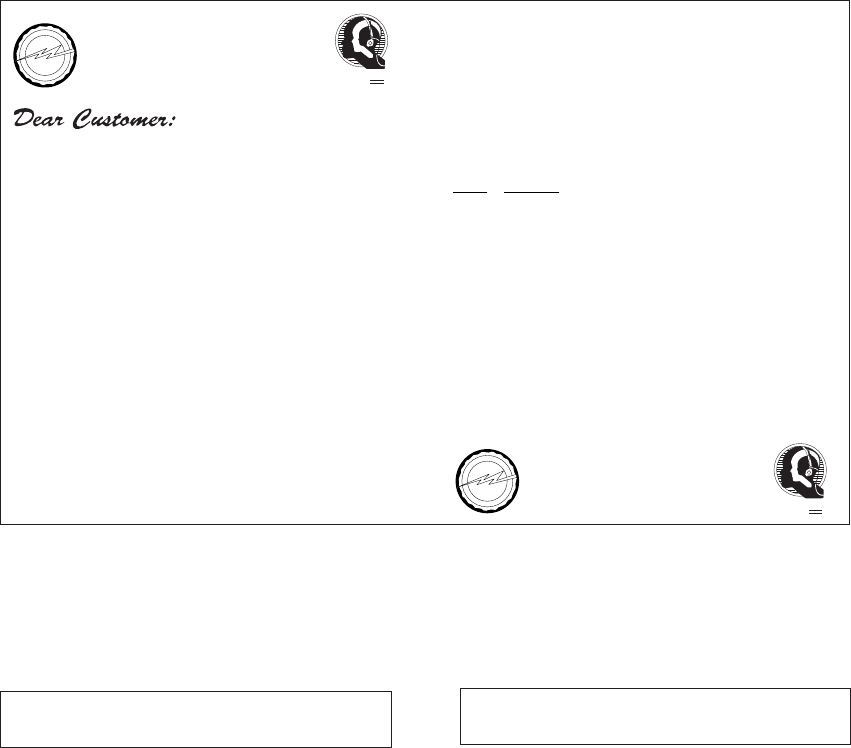
4
INSTALLATION........................................................ 4
MAINTENANCE ....................................................... 5
HANDLING CASSETTE TAPES............................... 6
CONNECTIONS ....................................................... 7
FRONT PANEL FACILITIES ..................................... 8
PLAYBACK ............................................................. 11
SINGLE PLAYBACK......................................... 11
BLANK SKIP..................................................... 11
RELAY PLAYBACK .......................................... 12
MUSIC SEARCH .............................................. 13
RECORDING........................................................... 14
RECORDING..................................................... 14
RECORDING MUTE ......................................... 14
ERASING A TAPE ............................................ 14
TAPE COPYING ..................................................... 15
TROUBLESHOOTlNG............................................ 16
SPECIFICATIONS.....................................Back cover
CONTENTS
INSTALLATION
When installing the deck, avoid locations with high
temperatures or humidity, and make sure that
the deck receives adequate ventilation.
7 Do not install the deck in locations subject to di-
rect sunlight, or near a space heater or other heat-
ing device, as this may cause damage to the fin-
ish or internal parts.
7
Malfunctions may also result if the deck is in-
stalled in an excessively humid or dusty location.
Avoid installing the deck next to kitchen counters
or other locations subject to oily smoke or humid-
ity.
7 If the deck is placed directly on top of an amplifier,
it may pick up humming or other noise. Also, if
the amplifier generates a large amount of heat,
the deck may malfunction.
7 If the deck is located near a television set, it may
pick up inter ference noise, which will be recorded
as a whistling sound on the tape. If this happens,
move the deck further away from the television
set or turn the television set off when operating
the deck.
7 Do not place a cloth over the deck, or block the
ventilation slots in any way. The ventilation slots
on this deck are necessary to keep internal parts
cool. If they are blocked, the deck may malfunc-
tion.
Selecting fine audio equipment such as the unit you’ve just
purchased is only the start of your musical enjoyment. Now it’s time
to consider how you can maximize the fun and excitement your
equipment offers. This manufacturer and the Electronic Industries
Association’s Consumer Electronics Group want you to get the
most out of your equipment by playing it at a safe level. One that
lets the sound come through loud and clear without annoying
blaring or distortion—and, most importantly, without affecting your
sensitive hearing.
Sound can be deceiving. Over time your hearing “comfort level”
adapts to higher volumes of sound. So what sounds “normal” can
actually be loud and harmful to your hearing. Guard against this by
setting your equipment at a safe level BEFORE your hearing adapts.
To establish a safe level:
÷ Start your volume control at a low setting.
÷ Slowly increase the sound until you can hear it
comfortably and clearly, and without distortion.
Once you have established a comfortable sound level:
÷ Set the dial and leave it there.
Taking a minute to do this now will help to prevent hearing damage
or loss in the future. After all, we want you listening for a lifetime.
We
Want You
LISTENING
For A Lifetime
We Want You Listening For A Lifetime
Used wisely, your new sound equipment will provide a
lifetime of fun and enjoyment. Since hearing damage from loud
noise is often undetectable until it is too late, this manufacturer
and the Electronic Industries Association’s Consumer Electronics
Group recommend you avoid prolonged exposure to excessive
noise. This list of sound levels is included for your protection.
Decibel
Level Example
30 Quiet library, soft whispers
40 Living room, refrigerator, bedroom away from traffic
50 Light traffic, normal conversation, quiet office
60 Air conditioner at 20 feet, sewing machine
70 Vacuum cleaner, hair dryer, noisy restaurant
80 Average city traffic, garbage disposals, alarm clock
at two feet.
THE FOLLOWING NOISES CAN BE DANGEROUS
UNDER CONSTANT EXPOSURE
90 Subway, motorcycle, truck traffic, lawn mower
100 Garbage truck, chain saw, pneumatic drill
120 Rock band concert in front of speakers, thunderclap
140 Gunshot blast, jet plane
180 Rocket launching pad
Information courtesy of the Deafness Research Foundation.
We
Want You
LISTENING
For A Lifetime
EST 1924
EIA
E
L
E
C
T
R
O
N
I
C
I
N
D
U
S
T
R
I
E
S
•
A
S
S
O
C
I
A
T
I
O
N
•
EST 1924
EIA
E
L
E
C
T
R
O
N
I
C
I
N
D
U
S
T
R
I
E
S
•
A
S
S
O
C
I
A
T
I
O
N
•
POWER-CORD CAUTION
Handle the power cord by the plug. Do not pull out the plug by tugging the cord and never touch the power cord
when your hands are wet a this could cause a short circuit or electric shock. Do not place the unit, a piece of furni-
ture, etc., on the power cord, or pinch the cord. Never make a knot in the cord or tie it with other cords. The power
cords should be routed in such a way that they are not likely to be stepped on. A damaged power cord can cause
a fire or give you an electrical shock. Check the power cord once in a while. When you find it damaged, ask your
nearest PIONEER authrized service center or your dealer for a replacement.


















